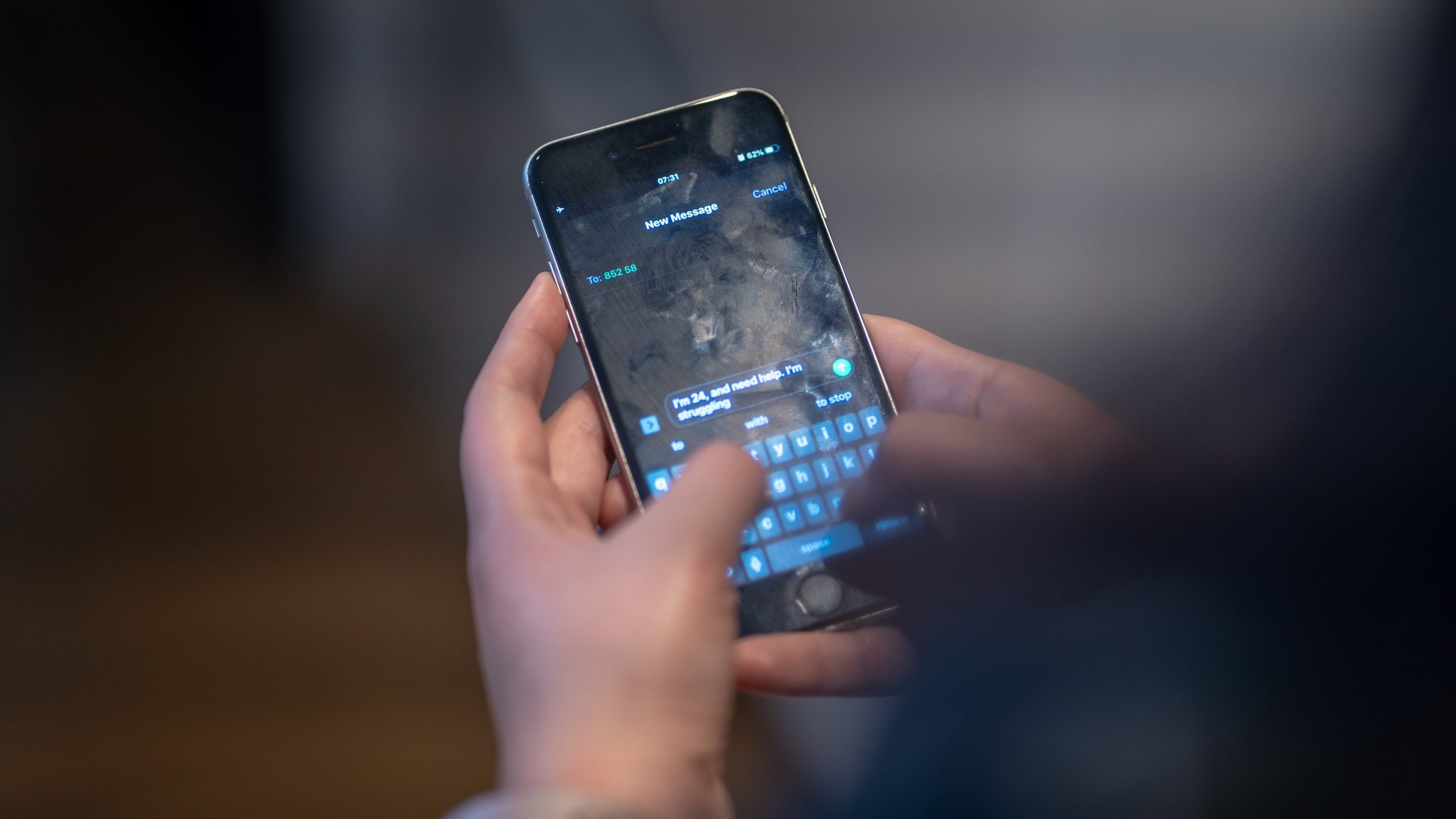“Hi, my name is James and I’m here to help tonight. It sounds like you’re going through a lot at the moment, would you like to tell me more about it?”
That’s how I’ve started 85 (and counting) conversations with people who have texted into Shout because they are in crisis and need someone to talk to. I’ve been working as a Crisis Volunteer since January after spending my Christmas holidays doing the online training and that opening phrase has led to conversations that I’ll remember for the rest of my life.
But first, what is Shout? Launched just over a year ago, Shout is the UK’s first 24/7 text service, free on all major mobile networks, for anyone in crisis anytime, anywhere. It’s a place to go if you’re struggling to cope and you need immediate help.
Here’s some mental health stats that explain why Shout is important:
- One in four adults experiences at least one diagnosable mental health problem in any given year
- One in eight five to 19-year olds has at least one mental disorder
- Mental health problems represent the largest single cause of disability in the UK
There are now just over 2,000 Crisis Volunteers working for Shout all around the clock to make sure anyone who needs help can get it quickly whenever that might be. And that demand is always growing, unsurprisingly given what has happened around the world even in the short time that I’ve been doing this.
A Crisis Volunteer can work from anywhere as long as they’ve got a computer and internet connection, using Shout’s platform to respond to texts. For me this works perfectly because it fits in with my life, having a day job here at Social and a young family I want to be present for, but also because writing responses on a laptop is so much easier for me than talking on the phone if I was volunteering for the Samaritans. I’m a Content Writer and I’m never very comfortable talking on the phone.
The training from Shout is excellent, as you’d expect with the platform having been developed in the USA as Crisis Text Line, and when I qualified, I really did have everything I needed in me to be a Crisis Volunteer. But that didn’t necessarily make it less terrifying the first time I pressed the button to start a conversation with someone and the first words they said to me were ‘I want to die’. After a moment’s panic I started texting my response and took it from there.
That first shift went ok, I think I helped the two people I talked to and both my supervisor (there’s always some available to help all CVs, both new and experienced) and other volunteers were incredibly welcoming and supportive. My second shift was when it really fell into place for me, talking to two more people with growing confidence and the feeling that this really was something I could do.
I finished that shift and could physically feel how much that experience of really helping people in crisis had positively affected me. I felt like I could do anything right then, up to and including shooting lightning out of my fingers like the Emperor from Star Wars (but a nice Emperor who wants to help people rather than enslave the galaxy). I’d never felt that way before.
But I’m a Crisis Volunteer and one of the most important things to remember at all times is that this isn’t about me. This is about the people who text in need of support. In my still fairly limited experience, most (but not all) texters are young, sometimes as young as their early teens, and the majority have been women and girls, though with an encouraging number of young men overcoming the stigma of reaching out for help too.
The reasons they are in crisis vary but loneliness, hopelessness, heartbreak, depression, anxiety, bullying, hearing voices and feeling suicidal are all too common. Before this year I’d never spoken to someone who wanted to end their life, now I do it at least twice a week, including one conversation I inherited partway through where the first message was that they were alone in an isolated location, about to do something incredibly dangerous to themselves.
That particular conversation ended with the person voluntarily receiving help from the emergency services, but I’ve also had at least one conversation with someone who didn’t want help. These conversations can be incredibly difficult and heartbreaking but it’s a privilege to be there for someone when they need it the most, whether you come away feeling like you’ve actually helped them or not.
One thing that has become clear is how external factors affect the way people feel. One of the busiest times so far for Shout came earlier this year after the death of Caroline Flack. Because of her high profile and the nature of what she went through, that led to a lot of people texting in feeling upset or vulnerable.
![]()
And then of course there’s COVID-19.
The pandemic and lockdown have definitely impacted on people’s mental health, that’s no great revelation. It’s certainly changed the nature of many of the conversations I’ve had, with loneliness, anxiety and isolation playing a bigger part than ever before. People have been missing friends and families and it’s often been hard to feel like I’m helping them during times when there’s been no easy solution to a problem caused by the need to keep everyone safe.
Shout has also been providing a crisis service for frontline NHS staff during unimaginably difficult times for them and I’m proud to have played a part in that. I’ve spoken to staff who have been absolutely terrified about the thought of going into work, as well headteachers from schools struggling with the incredible responsibilities they face trying to open up to more children while following the guidelines to protect staff, children and their families.
I never thought when I started this only a few months ago that I’d be volunteering during a pandemic and talking to people facing these kind of situations, but I’m very lucky to be in this position and grateful for the opportunity to play some small part in helping them help us. It’s often hard and the most difficult time is usually the feeling of guilt when I sign off at the end of my shift seeing a queue of people still waiting for help.
Talking really does help, I’ve seen that work first-hand when taking someone from a crisis to feeling calmer in the space of a 45-minute text chat. It doesn’t always help of course, but it’s always better to try, so if you need someone to talk to, please text Shout to 85258. You deserve help and support, whatever it is that you’re going through.
If you want to find out more about volunteering with Shout you can start that process here. It could change your life.


